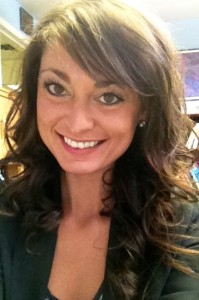Occasionally I have guest bloggers talk about issues where they have more expertise than I. Tarah Elhardan is one such example. I am currently supervising Tarah for her internship in counseling through Western Michigan University. Things continually change in regards to what new graduates need to complete, so she has taken the time to chronicle her experiences and share them with you. Since we’re based out of Michigan, these are specific to Michigan LLPCs and that application process, but there are many things that you can learn from Tarah. Hope this helps you! -Joe
As a student coming close to the completion of my master’s in counseling program, I have experienced a bit of confusion when it comes to obtaining my license. I remember thinking that it automatically came with your diploma once you graduated from the program. However, there are multiple steps that one has to take before acquiring their limited license. I am writing this hoping to inform other students about the process of getting their Michigan counseling license in hopes that they can avoid frustration and anxiety surrounding the process.
Get the LLPC first
First off, one needs to know that you must have your limited license BEFORE you can start accumulating your 3,000 hours towards your full license as a licensed professional counselor, LPC. When you apply for your limited license, it is required that you include the name of your supervisor that will be supervising your for these 3,000 hours and their written statement that they agree to supervise you. The supervisor has to be a fully licensed counselor as well (NOTE FROM JOE: There are also new supervision guidelines, make sure your supervisor meets these guidelines). There is a licensing fee of $80.00 at the time when the application is due.
The application is valid for two years.
So an applicant has two years to get all of the necessary information to the counseling board.
Those applying for a limited license will also have to go through a background check and submit their fingerprints. There is also a fee for fingerprinting which costs about $65.00. The counseling board also only accepts background checks and fingerprints that is done for licensing purposes, so they cannot be from a prior experience and used again for this purpose.
Master’s Programs
Applicants also have to be from a master’s program in counseling of not less than 48 hours and have to include courses in the following areas: career development, consulting, counseling techniques, counseling theories, research methods, professional ethics, counseling philosophy, group techniques, testing procedures and practicum. Also the applicant’s program needs to include an internship that consists of not less than 600 hours of supervised clinical experience, in the practice of counseling.
Other educational requirements for the LLPC application include sending over an official transcript from the institution where you received your master’s degree, and also having a certification of Counseling Education form completed. That particular form has to be sent to that institution to verify that you did in fact receive a master’s degree, and then THEY have to send it to the Counseling Board.
Professional Disclosure Statement
Professional Disclosure statements also have to be submitted as part of your application. I first heard of this statement in my theories & ethics class, which luckily fell into my first semester load of classes. As one of the requirements for class, our professor had us make our own professional disclosure statement as if we were already counselors in private practice, handing those out to our clients. To me that was very helpful in visualizing the future and it also gave me the opportunity to start making goals as to what I wanted to do in the field down the road.
PROFESSIONAL DISCLOSURE STATEMENTS MUST BE ON FILE IN ORDER FOR ONE TO BE ISSUED A LICENSE. It also must include the following: a) Name, b) business address and telephone number, c) description of your practice, d) description of your education and experience, e) the fee that you will be charging your clients and f) NAME OF LPC SUPERVISING YOU for your 3,000 hours! There is also a part of the application that your supervisor has to send in.
Also, to obtain your limited license professional counselor (LLPC), one does not have to be a National Certified Counselor. Only when one applies for their full license do they need to take and pass the National Certified Counselor exam. For a masters level student it is $295.00 and the testing dates are in October and April months. However, personally I think it is wise to take the exam upon or close to graduation while the material is still fresh (and up to date) in your head. Also, if for some reason you need to re-register to take the NCE you will need to send a copy of your transcript once more.
Original licenses are valid for a year or less but after that you will need to renew your license every three years for a fee of $115.00. It takes 6-8 weeks to process an application, so plan accordingly!
Once you have your license keep in mind that EVERY time you move counseling locations or jobs, you must update that with the counseling board. Also, if you get married and your transcript that you sent in to get your limited license was under your maiden name… send legal documentation AS SOON AS POSSIBLE with the name change or your hours WILL NOT COUNT (until you have the updated name on file).
Here is the link in which you will find the step-by-step application for both LLPC and LPC, fingerprint and criminal background check forms, as well as a the template for the professional disclosure statement. It also includes an application to be a Nationally Certified Counselor (NCC).
Link to the application Application
Tarah Elhardan will soon be graduating with her Masters of Arts in Counseling from Western Michigan University in Traverse City, MI. She will then begin the process of applying to become a Limited License Professional Counselor (LLPC). She also has worked as the therapeutic coordinator for the SAIL Champion Program, a therapeutic sailing program. She is also helping www.LLPCsupervision.com and www.MichiganCounselorSupervision.com to connect new counseling graduates, LLPCs, and supervisors with one another.
Photo from Creative Commons, thank you to stevendepolo



